First international plant health conference
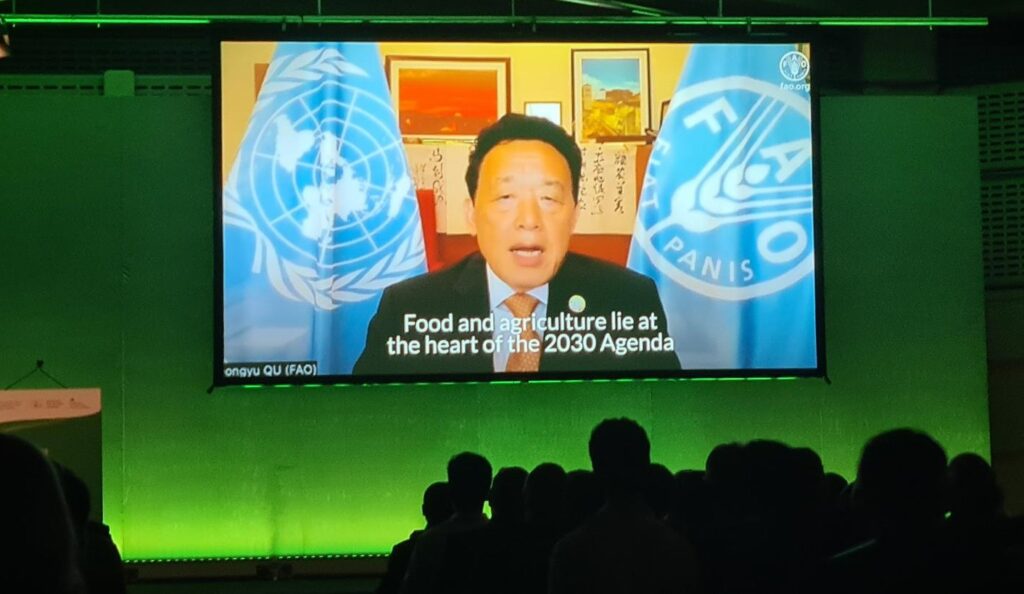
The CONNECTED team recently attended the first ever International Plant Health Conference, organised by the Secretariat of the International Plant Protection Convention (IPPC) and the Department for Environment, Food and Rural Affairs (Defra).
The conference was themed around food security, environmental protection and trade, with the aim of boosting collective efforts on plant protection. Plant diseases cost the global economy $220bn per year. Many CONNECTED network members are already aware that cassava disease alone costs $1bn per year.
The Food and Agriculture Organisation (FAO) of the United Nations designated 2020 as the International Year of Plant Health, but the conference was delayed by Covid-19 until now. Over 500 delegates from 70 countries gathered in London, with many more joining online.
Attendees included policymakers, regulators, plant scientists, social scientists, horticulturalists, NGOs and trade bodies, all underlining the importance of plant health to our future.
Read on for some interesting statistics and conference highlights…

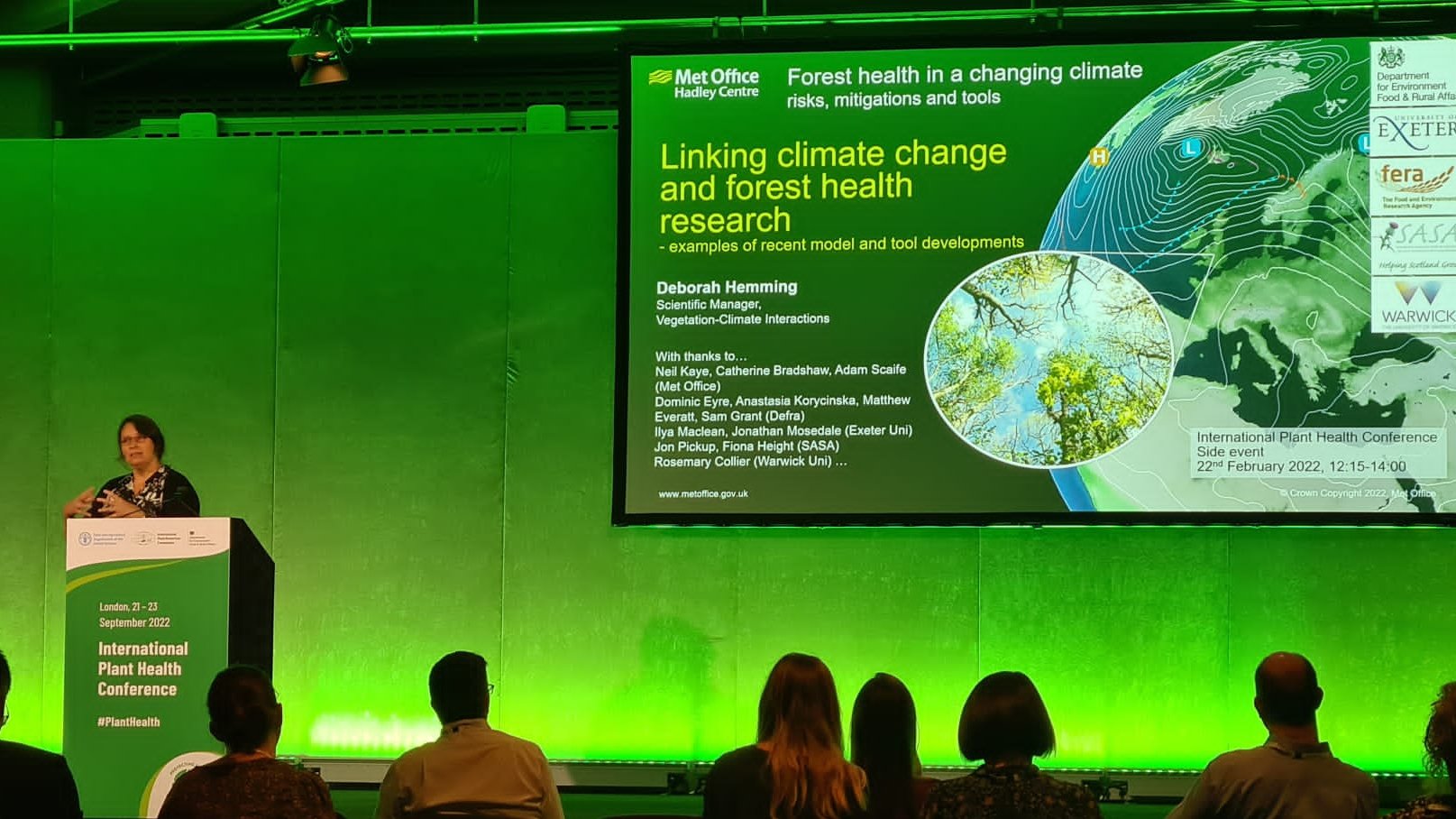
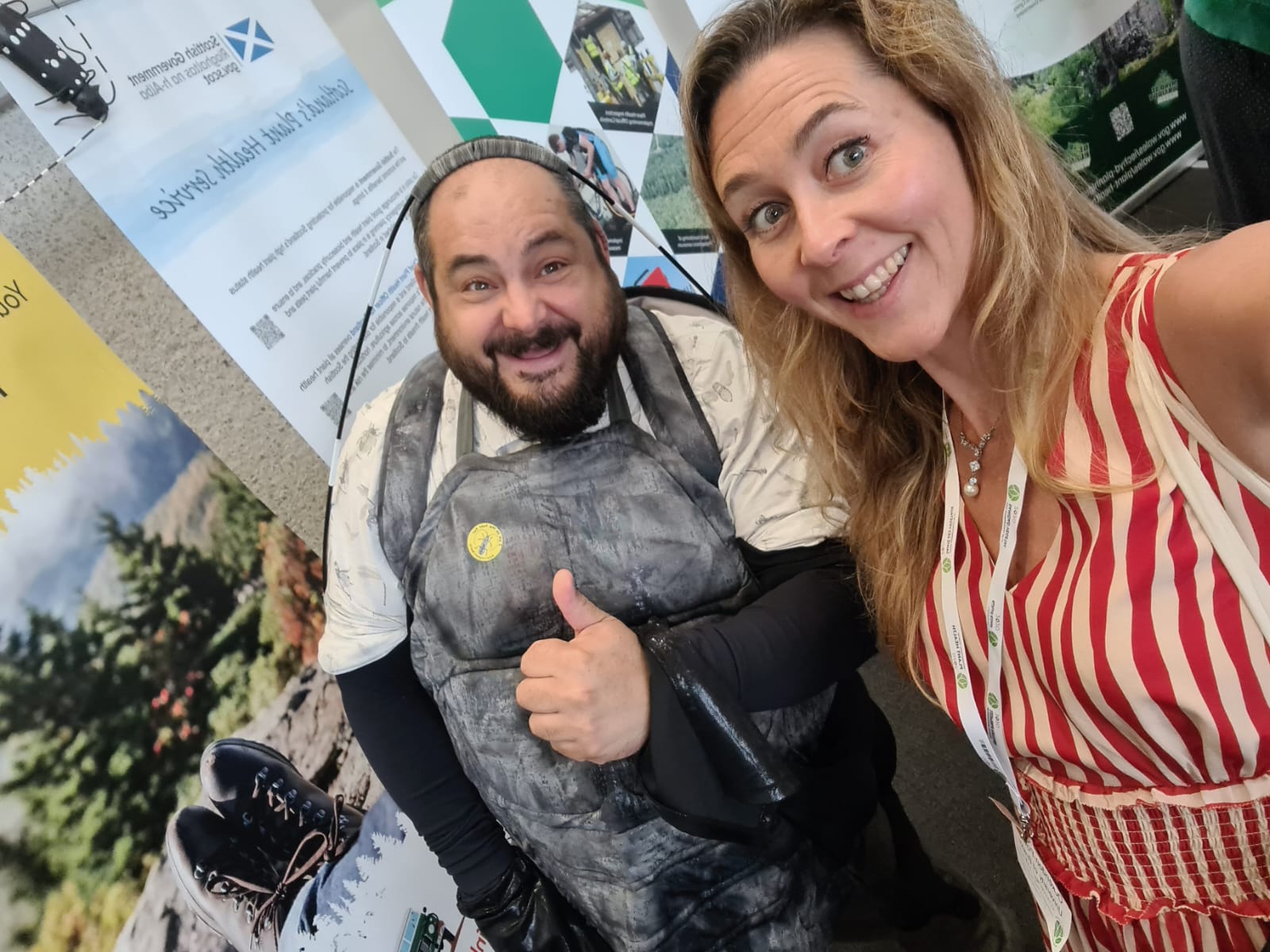

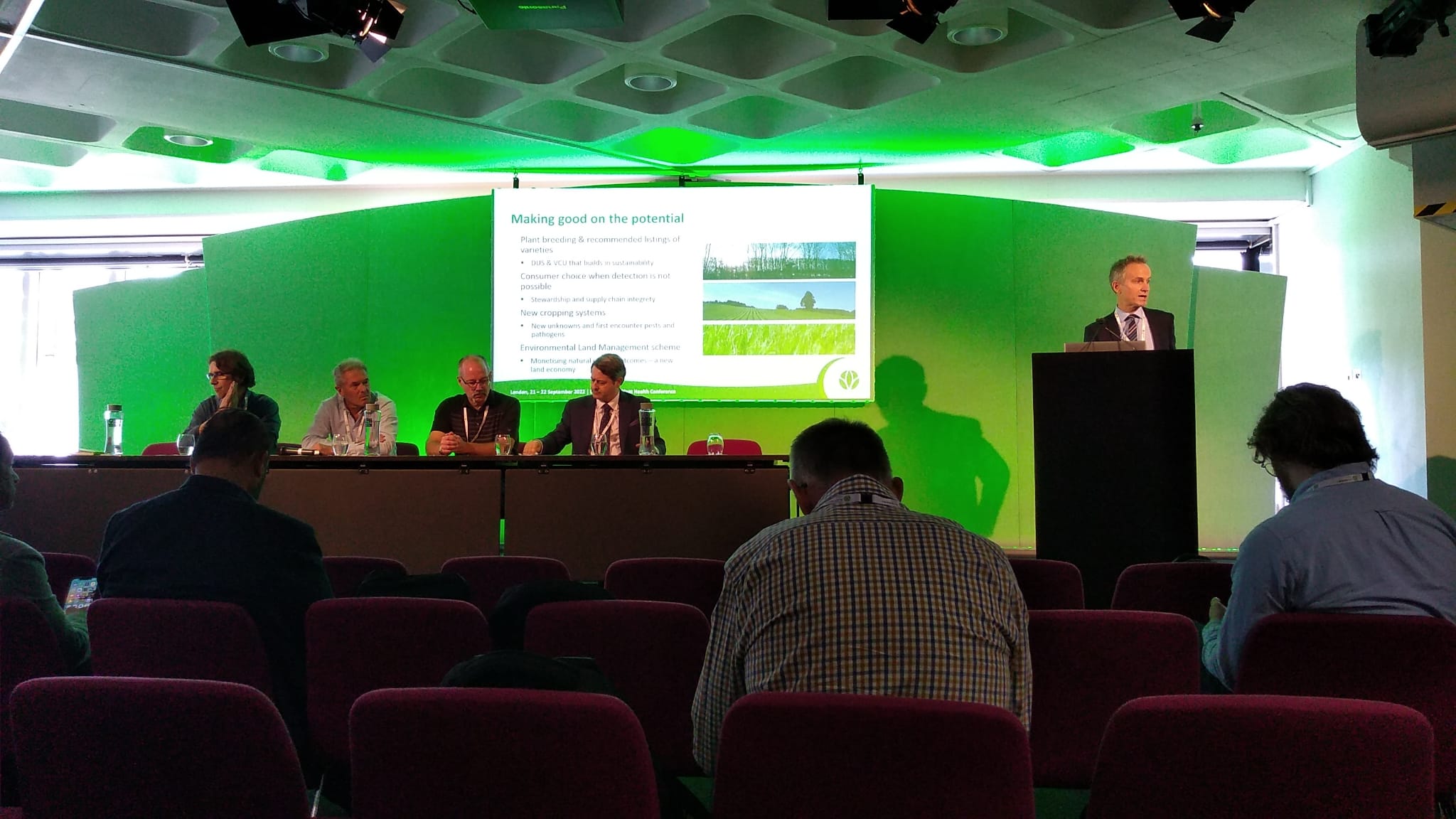
Quick facts
Hunger…
The 3 top crops for feeding the world: wheat, maize, rice
The Covid-19 pandemic complicated food systems, meaning more people are going hungry
In 2021, 820M people went hungry
Climate change…
Climate change is causing increases in pests and disease: in the last 40 years it has cost $70M and is an important driver of biodiversity loss
Yield loss is predicted to increase by 10-25% per degree of warming
Ways forward include strengthening extension & information, especially in rural environments; also international cooperation, communication and collaboration
Plant health management through partnerships

Of particular interest to the CONNECTED team was the Plant Health management in the Global South through Partnerships session, chaired by the irrepressible Prasanna Boddupalli from CIMMYT.
This included presentations on the current Plant Health Initiative at CGIAR with the emphasis on working with partners and promoting global research co-operation on plant health management. This included areas of work in emergency preparedness and rapid response, plus diagnostics and surveillance networks in the global south.
This session also included talks on the role of gender in plant health. In an impact assessment, Yanyan Liu highlighted that women tend to be responsible for pest and disease management on farms and yet extension resources are targeted to men.
Food security and sustainability
“There is no contradiction between food security and sustainability,” said Claire Bury of the EU Commission, speaking about food security, innovation and the EU.
Europe has committed 600M euros to help food security internationally. In northern Europe it is more an issue of food affordability than insecurity.
Biotech (genomic technologies) is an answer to food insecurity, with evidence of big potential. But “you can’t eat potential”. The EU will come forward (next year) with a new framework to make genomic technologies easier to uptake and safer. There has also been a public consultation, with results to be published soon.
40% of the world’s food is grown by smallholder farmers
Communication across different disciplines
Good communication, or the lack of it, was a consistent theme across all 3 days of the conference. There was a plea from Pete Hollingsworth from Royal Botanic Garden Edinburgh for people to listen across sectors, the biodiversity people need to listen to the biosecurity people and they need to share practices.
As a reminder of the challenge, a delegate who works for a large public-facing horticultural organisation who has responsibility for plant health would love to create more public content about plant health but their communications team are not keen because “plant health is not sexy”. We need better internal and external communication about plant health.
Be a biologist not a chemist
In an interesting talk, Roma Gwynn said “We’ve spent too long thinking like chemists and not like biologists.” She was promoting approaches to crop protection through selecting plant varieties that work with the biology around them (soil, microbiome etc).
Biocontrol can be an ecosystem service – it can be much more than pest control!
ePhyto scheme
On the final day there was an excellent presentation by Josiah Syanda from KEPHIS on the ePhyto scheme https://www.ippc.int/en/ephyto/ He linked plant health regulation to facilitation and the importance of communicating information about the health of plant produce in a concise and efficient way in order to maximise trade.
Moth shooting
Several videos and animations were shown, perhaps the most striking was during the Moonshot R&D Program presentation by Norihide Hinomoto, Kyoto University – this described research on moth flight paths that could then be used to direct field-based lasers to shoot moths out of the sky. Some health and safety considerations may need to be addressed in the development of this technology!
The Plant Health Movement
The closing speaker, horticulturalist, writer and broadcaster and FAO Goodwill Ambassador, Diarmuid Gavin described the delegates as the ‘Plant Health Movement’ and in a world where we all need to be “gardening, farming, producing and consuming in a sustainable manner… we still have loads to do.”
Huge thanks to the IPPC and the Defra team for bringing such a diverse group of people together. We still ‘have loads to do’ and we look forward to meeting again at the next IPHC whenever and wherever that may be.
The conference was co-organised by the Department for Environment, Food & Rural Affairs (DEFRA) of the United Kingdom (UK) and the Secretariat of the International Plant Protection Convention of the Food and Agriculture Organization (FAO) of the United Nations
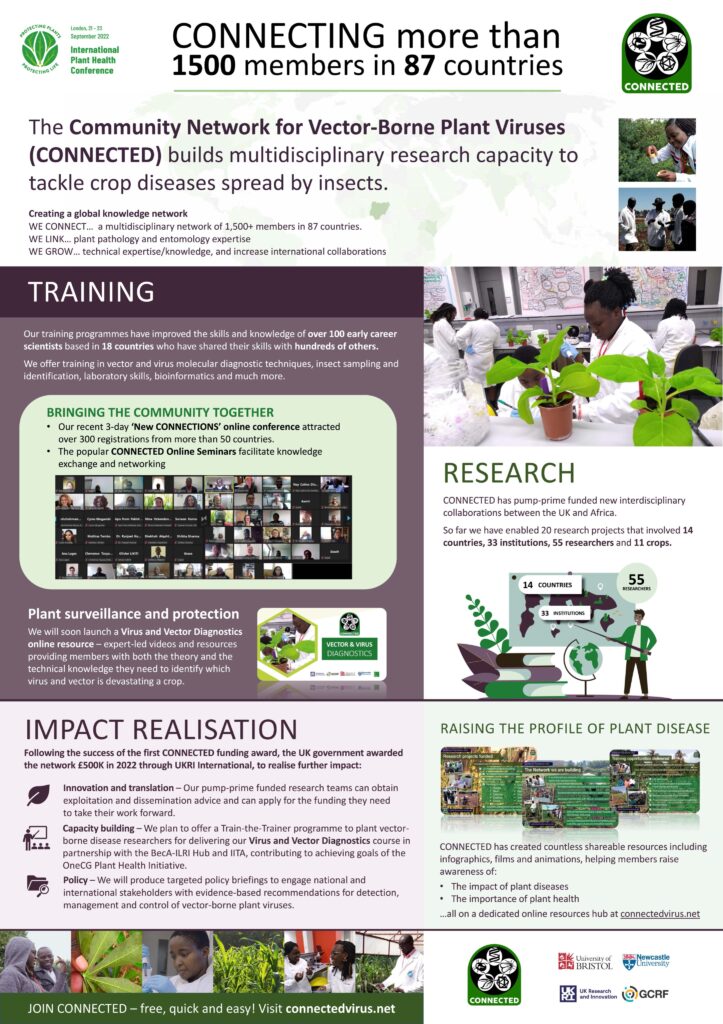
At the event, CONNECTED presented a scientific poster about the network’s impact and future plans.
